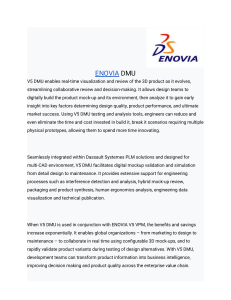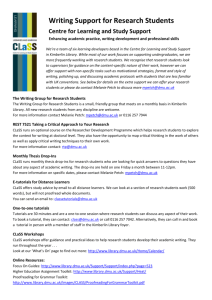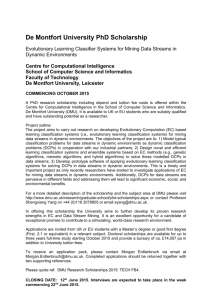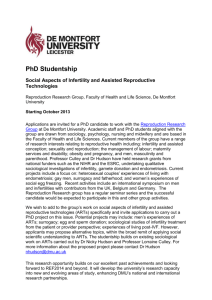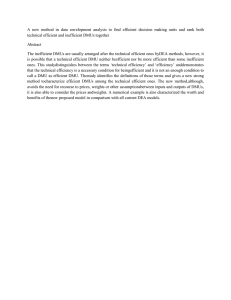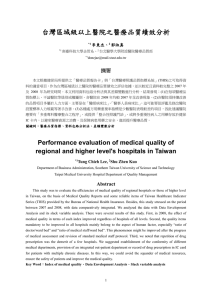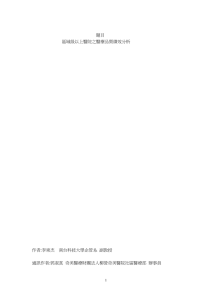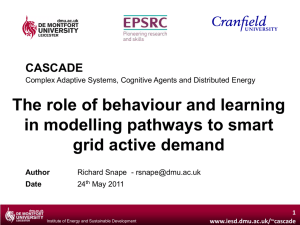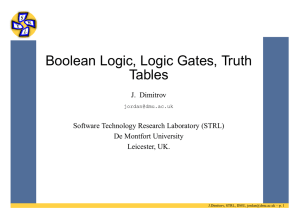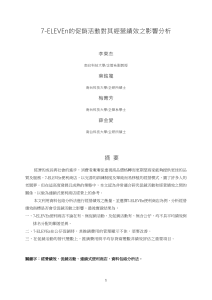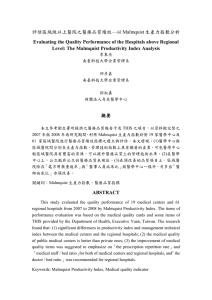Meeting Summary 27_11_2014
advertisement
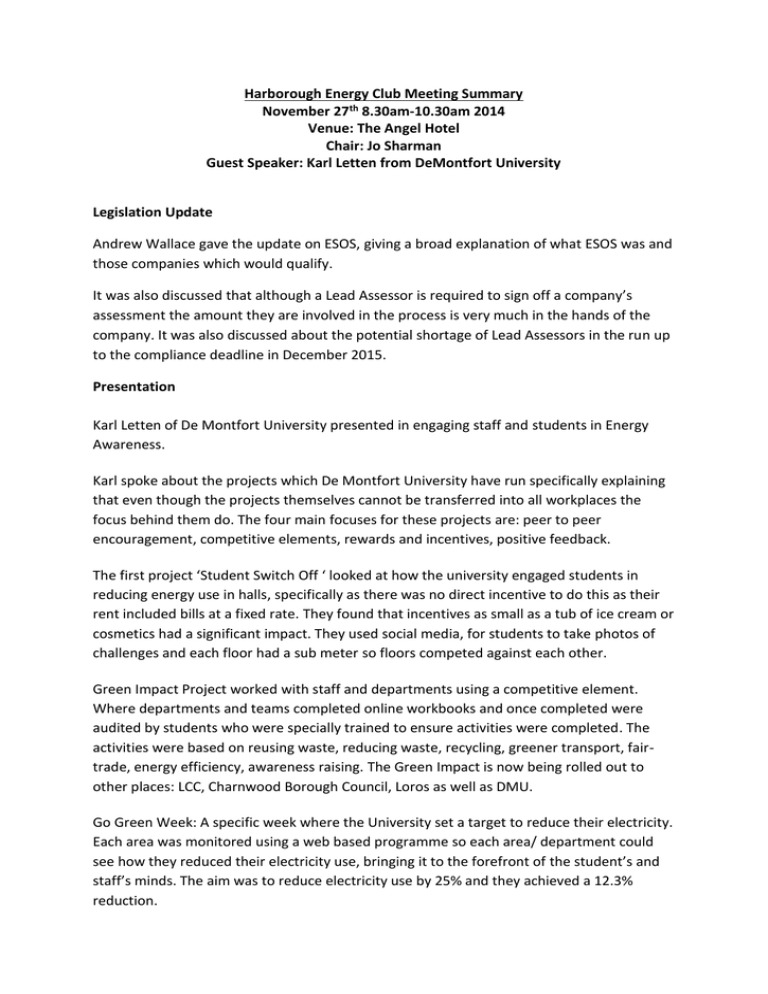
Harborough Energy Club Meeting Summary November 27th 8.30am-10.30am 2014 Venue: The Angel Hotel Chair: Jo Sharman Guest Speaker: Karl Letten from DeMontfort University Legislation Update Andrew Wallace gave the update on ESOS, giving a broad explanation of what ESOS was and those companies which would qualify. It was also discussed that although a Lead Assessor is required to sign off a company’s assessment the amount they are involved in the process is very much in the hands of the company. It was also discussed about the potential shortage of Lead Assessors in the run up to the compliance deadline in December 2015. Presentation Karl Letten of De Montfort University presented in engaging staff and students in Energy Awareness. Karl spoke about the projects which De Montfort University have run specifically explaining that even though the projects themselves cannot be transferred into all workplaces the focus behind them do. The four main focuses for these projects are: peer to peer encouragement, competitive elements, rewards and incentives, positive feedback. The first project ‘Student Switch Off ‘ looked at how the university engaged students in reducing energy use in halls, specifically as there was no direct incentive to do this as their rent included bills at a fixed rate. They found that incentives as small as a tub of ice cream or cosmetics had a significant impact. They used social media, for students to take photos of challenges and each floor had a sub meter so floors competed against each other. Green Impact Project worked with staff and departments using a competitive element. Where departments and teams completed online workbooks and once completed were audited by students who were specially trained to ensure activities were completed. The activities were based on reusing waste, reducing waste, recycling, greener transport, fairtrade, energy efficiency, awareness raising. The Green Impact is now being rolled out to other places: LCC, Charnwood Borough Council, Loros as well as DMU. Go Green Week: A specific week where the University set a target to reduce their electricity. Each area was monitored using a web based programme so each area/ department could see how they reduced their electricity use, bringing it to the forefront of the student’s and staff’s minds. The aim was to reduce electricity use by 25% and they achieved a 12.3% reduction. Smart Spaces Project: A simple system developed by DMU IESD to engage building users to communicate energy usage. It uses half hourly metering in DMU and LCC buildings. The system makes a prediction from this of its energy use and assigns a face depending on how building performs against its prediction and outside temperature. This updates on a regular basis showing an up-to-date picture. It was designed by a Harborough resident and it is currently being looked at for use with commercial applications and DMU are discussing its potential with companies. See http://smartspaces.dmu.ac.uk/ to see it in operation. Mastermind/ Problem Solving Because of the new TEEP regulations, re. Business waste and recycling starting January 2015 general discussions took place about reducing waste and recycling. Members shared the various schemes which had worked within their organisations. Motivation of staff members was also discussed following on from Karl Letten’s presentation. AOB The next Energy Club meeting will take place on Tuesday 3rd February. Harborough District Council have offered to host, and provide a talk and tour. In future meetings there was an interest in discussions about waste as well as talks about the different financing options available for businesses.
